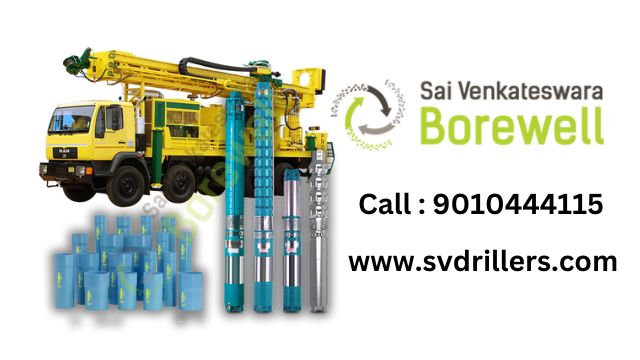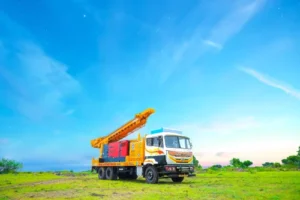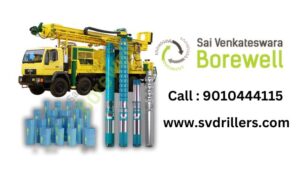Introduction
Securing a reliable water source is crucial for homes, agriculture, and industries—especially in regions with inconsistent municipal supply. Borewell drilling offers a sustainable solution, tapping into deep groundwater reserves. However, without proper planning and expertise, you risk wasted investments, low yield, or even dry wells.
If you’re considering borewell drilling, this guide provides expert-backed tips to ensure a successful project—from site selection to maintenance. Whether you need water for irrigation, residential use, or commercial purposes, these insights will help you maximize efficiency and longevity.
What is Borewell Drilling?
Borewell drilling is the process of digging deep, narrow wells to access groundwater reserves trapped in aquifers. Compared to traditional open wells, borewells offer:
- Deeper water access (100–1500+ feet)
- Higher yield potential
- Reduced contamination risk
- Long-term sustainability
Modern drilling techniques, such as rotary drilling and percussion drilling, ensure precision and efficiency.
How Does Borewell Drilling Work?
The process typically follows these steps:
- Hydrogeological Survey – Experts assess underground water availability using advanced techniques.
- Site Selection – The optimal drilling location is chosen based on water tables and geological conditions.
- Drilling – Heavy machinery is used to penetrate deep into the earth’s layers.
- Casing & Filter Installation – Prevents contamination and ensures clean water flow.
- Development & Testing – Borewell capacity is tested to determine yield.
For residential or commercial borewell installation, hiring experienced professionals like SV Drillers ensures quality and reliability.
Key Factors for Successful Borewell Drilling
1. Conduct a Hydrogeological Survey
Before borewell drilling, a hydrogeological survey helps identify:
- Water-bearing zones
- Optimal drilling depth
- Aquifer recharge rates
This minimizes the risk of low-yield or unsuccessful drilling.
2. Choose the Right Drilling Method
Several techniques are used depending on soil type and depth:
- Rotary Drilling – Suitable for hard rock formations.
- Percussion Drilling – Ideal for loose soil and sedimentary rocks.
- DTH (Down-the-Hole) Drilling – Best for deep, hard-rock borewells.
Consulting experts ensures the right method is chosen.
3. Proper Casing & Filter Installation
A borewell casing prevents:
- Collapsing walls
- Surface contamination
- Sediment clogging
A stainless steel or PVC casing is recommended depending on soil conditions.
4. Maintain Regular Water Testing
Groundwater quality varies; regular water testing ensures:
- Safe drinking water
- Mineral balance suitability
- No contamination detection
5. Ensure Sustainable Water Usage
Over-pumping can dry up aquifers. Experts recommend:
- Monitoring water extraction rates
- Implementing rainwater harvesting
- Recharging borewells periodically
Common Mistakes in Borewell Drilling & How to Avoid Them
| Mistake | Solution |
|---|---|
| Skipping hydrogeological surveys | Always analyze underground water availability before drilling |
| Incorrect drilling technique | Consult professionals like SV Drillers for guidance |
| Poor casing material selection | Use high-quality PVC or stainless steel casing based on soil type |
| Overlooking maintenance | Regularly clean and test your borewell |
| Ignoring legal permissions | Obtain necessary permits to avoid legal issues |
FAQs on Borewell Drilling
1. How deep should a borewell be?
The ideal depth varies (typically 150–1200 feet), depending on geological surveys.
2. What is the average cost of borewell drilling?
Costs range from ₹50–₹200 per foot based on depth, soil type, and location.
3. How do I know if my borewell is yielding enough water?
Experts conduct borewell yield tests post-drilling to determine flow rate.
4. Can a failed borewell be reused?
Sometimes, redevelopment techniques like hydrofracturing can restore water flow.
5. How long does a borewell last?
With proper maintenance, a well-constructed borewell can last 15–25+ years.
Conclusion & Call to Action
A successful borewell drilling project requires expertise, proper planning, and ongoing maintenance. By following these expert tips—conducting surveys, using the right drilling technique, and ensuring quality casings—you can secure a long-term, reliable water source.
🚀 Need expert help?
📞 Call us today at +91 9010444115
🌐 Visit SV Drillers for a free consultation!
List of Keywords & Hyperlinks
Primary Keyword:
Borewell Drilling
LSI Keywords:
By optimizing for search engines and user engagement, this guide ensures you make informed decisions about borewell drilling. For further insights, visit Vebnox.



